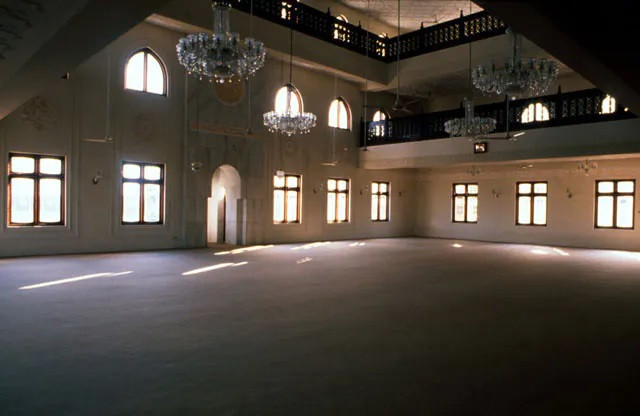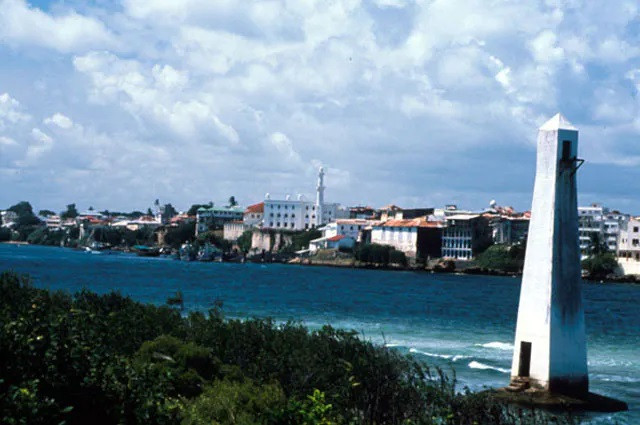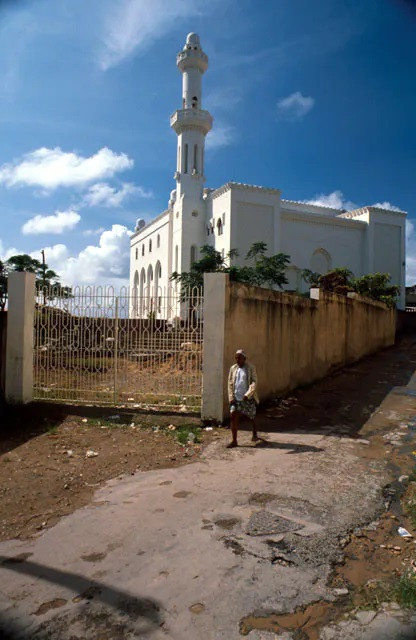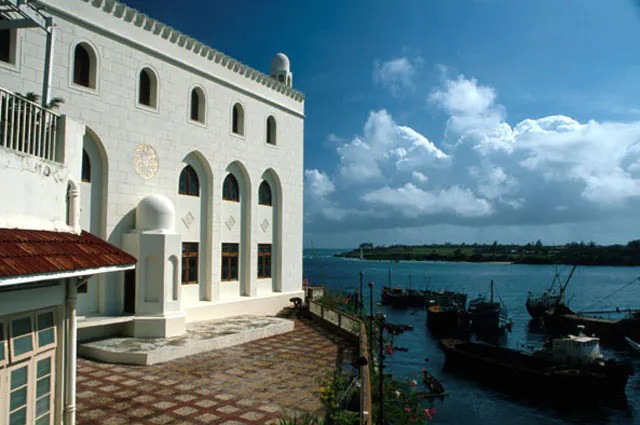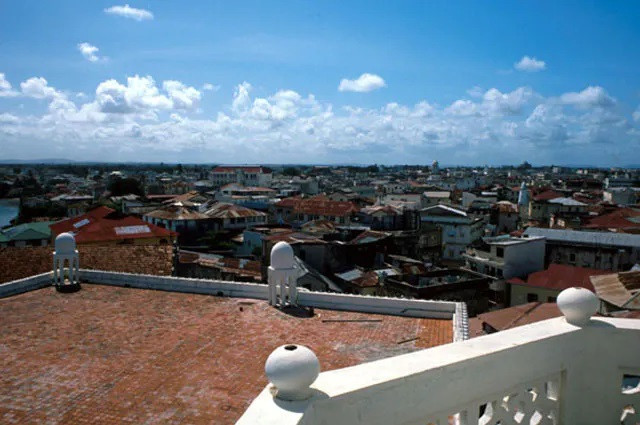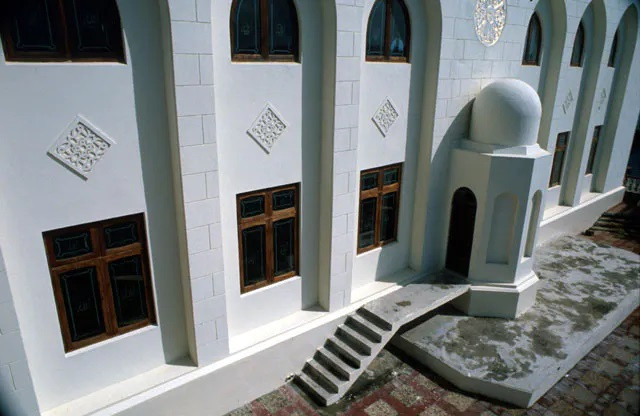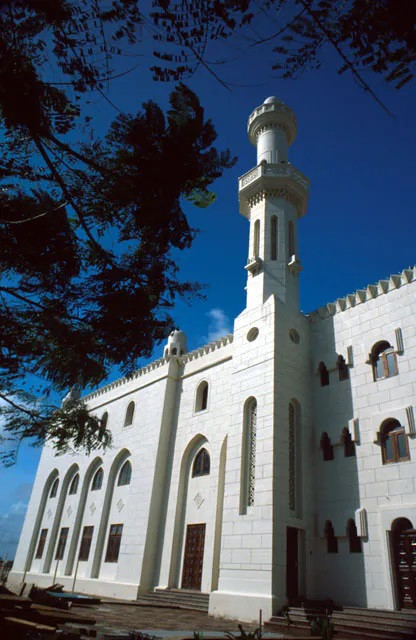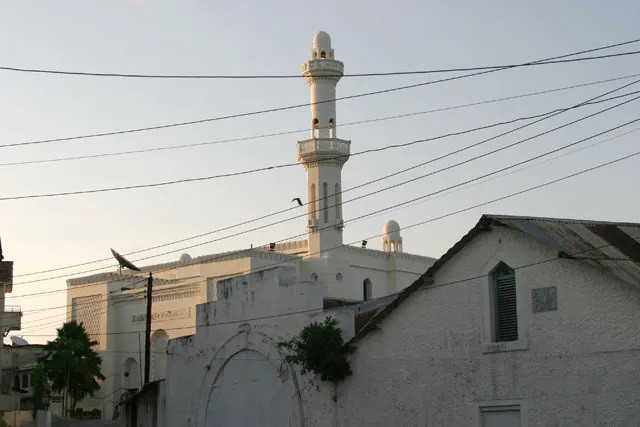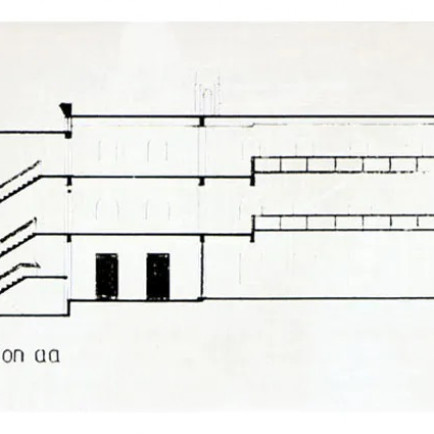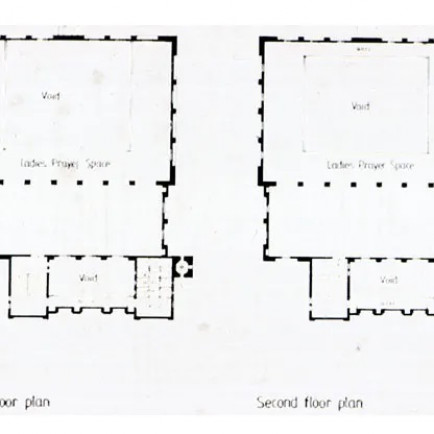Burhani Mosque Kenya
History
A mosaque built in 1988 for the community of Dawoodi Bohras in Kenya, which is a sect that belongs to the Shia Ism'l branch of Islam. The traditions of the Fatimid Imams—direct descendants of the Islamic prophet Muhammad through his daughter Fatima—contain the cultural heritage of this sect.
Urban and Architectural
A sizable, paved terrace surrounds the white, rectangular, three-story mosque. It has a flat roof. An even more remarkable mihrab, which projects totally out of the "qibla" wall and is accessible from the outside through stairs and a wooden entrance door, is complimented by the odd sequence of an open and covered courtyard. On the eastern side of the structure is where the minaret is located.
Description
The mosque is built in Neo-Fatimide style. The mosque is a multi-story building; men gather in the wide main prayer hall on the first floor while women convene on the higher floors. Women may hear and follow religious ceremony and sermons from the floors above thanks to the void left in the center of the prayer hall.
References
https://www.archnet.org/sites/678
https://ke.africabz.com/mombasa/burhani-masjid-104406
https://en.wikipedia.org/wiki/Dawoodi_Bohra
Details
Location
Burhani Masjid, Badri Mosque, Mombasa, Kenya
Worshippers
1350
Owners
Dawoodi Borha Disciples
Year of Build
1984
Area
2700
Drawings
Map
History
A mosaque built in 1988 for the community of Dawoodi Bohras in Kenya, which is a sect that belongs to the Shia Ism'l branch of Islam. The traditions of the Fatimid Imams—direct descendants of the Islamic prophet Muhammad through his daughter Fatima—contain the cultural heritage of this sect.
Urban and Architectural
A sizable, paved terrace surrounds the white, rectangular, three-story mosque. It has a flat roof. An even more remarkable mihrab, which projects totally out of the "qibla" wall and is accessible from the outside through stairs and a wooden entrance door, is complimented by the odd sequence of an open and covered courtyard. On the eastern side of the structure is where the minaret is located.
Description
The mosque is built in Neo-Fatimide style. The mosque is a multi-story building; men gather in the wide main prayer hall on the first floor while women convene on the higher floors. Women may hear and follow religious ceremony and sermons from the floors above thanks to the void left in the center of the prayer hall.


